VJ Day: At 18 I was fighting the Japanese in Burma
- Published
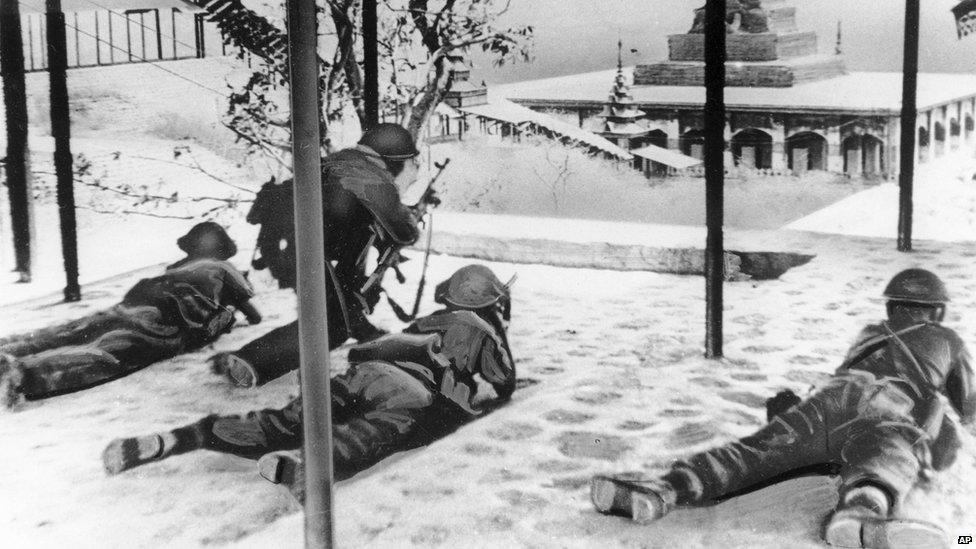
Vic Knibb was 18 when he fought the Japanese in Burma.
"It's terrifying," he admits. "War is so frightening - it's a terrible thing.
"People are trying to kill you and it's no joke. You'd shoot them first and ask questions afterwards."
This weekend sees the 70th anniversary of VJ Day - the date when Japan surrendered and World War Two ended.
"I was a 'young' 18-year-old. We were quite young and inexperienced in life."
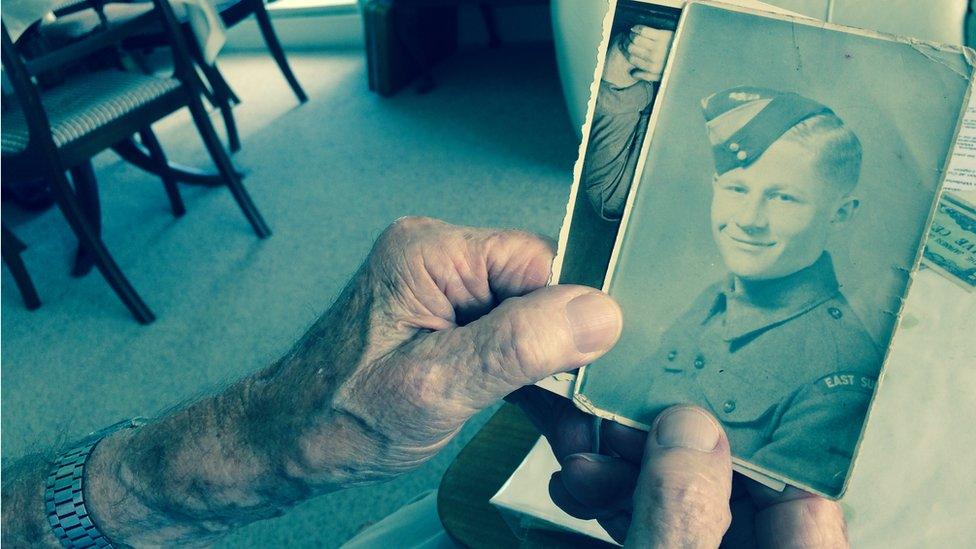
Vic Knibb as a young soldier in 1943
Vic joined the British Army in 1942 and was sent to fight the Japanese who'd invaded Burma (it's now called Myanmar).
He was away from home fighting for nearly three years. "You survived day by day," he remembers.
He often hoped the war would end and he kept a diary.
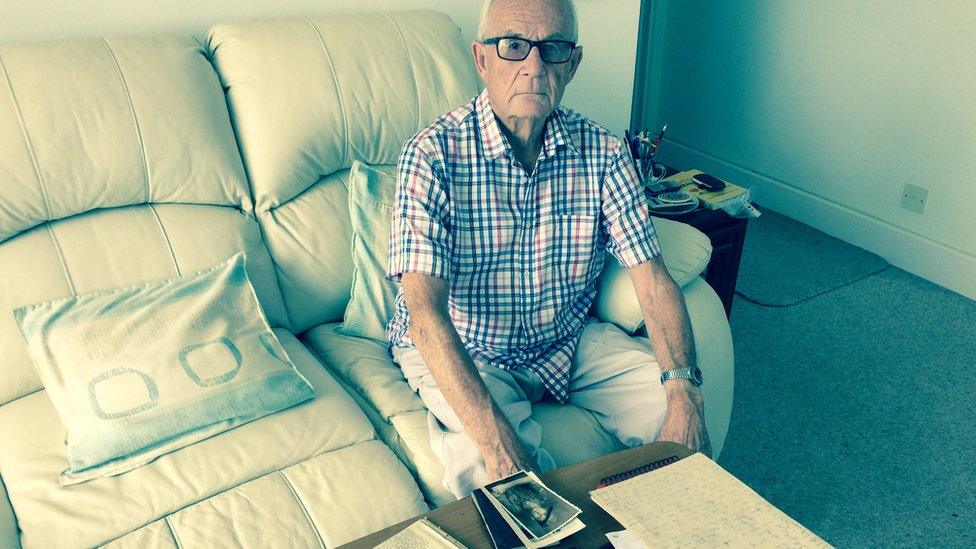
Vic 70 years after the war ended
"I wrote a diary and it just said, 'Wrote to parents', 'Slept well' or 'Marched seven miles' or something like that.
"It's not marching - it's walking through the jungle in virtual single file with potentially the enemy about."
Vic remembers the day he was shot and narrowly avoided death thanks to his diary.
"This diary I've got here has a bullet hole in it from where I was shot."
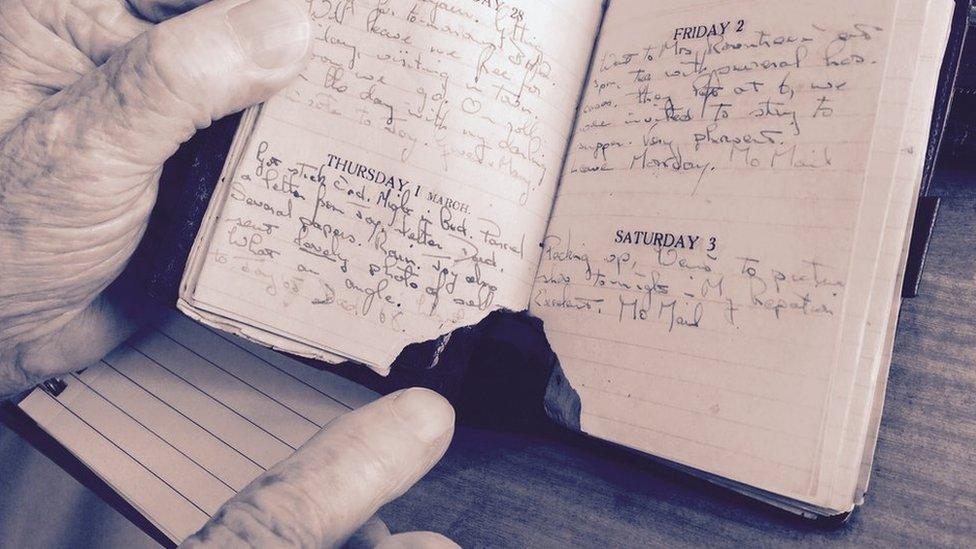
A Japanese bullet ripped this hole into Vic's diary
"We were woken up about half-past four by the Japanese who attacked us.
"The diary was in my small pack which I was using as a pillow sleeping on the ground and I got this terrific thump on the back of my head."
A bullet had ripped through the spine of the notebook.
He says "you just accepted it" when his comrades would die in battle.
"War is no joke. You're dirty, you're thirsty, you're hungry.
"You haven't got any news. We didn't know what was happening at all."
Victory over Japan
"We got to Rangoon [now Yangon] - Burma's capital - and someone says, 'They've dropped a bomb' and you hear they've surrendered," Vic remembers.
"We had no idea how big the bomb was. We knew it was an atom bomb but we had no conception what an atom bomb was."
Read how one woman survived Hiroshima's atomic bomb
"There were 26,000 dead young British soldiers in Burma that didn't come back," Vic explains.
"With the VJ Day coming up it's in the memory of those 26,000 men that didn't come back. If it hadn't been for them the whole history would have changed."
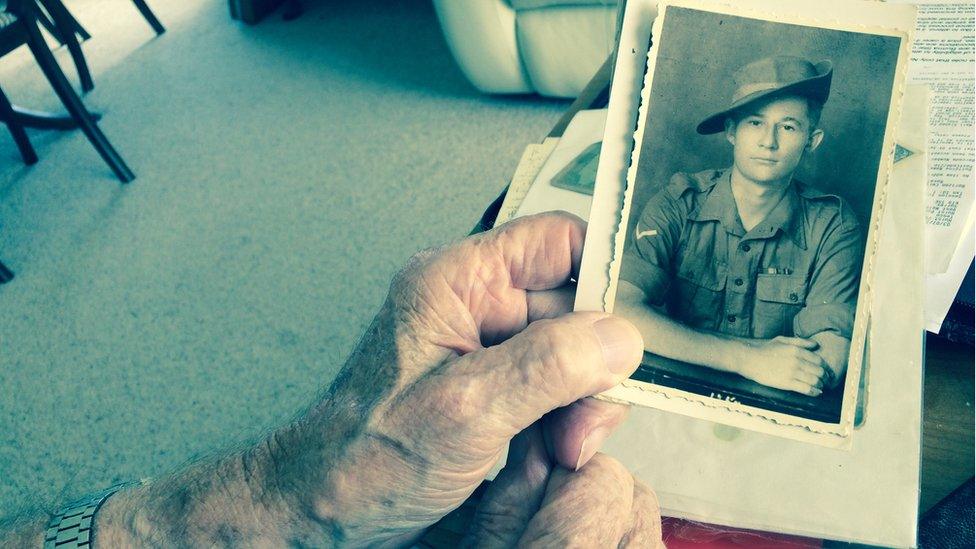
Vic was 21 years old when the war ended
Coming home
"The first night I was home I told my parents what had happened, but after that I never talked about Burma for 30-odd years.
"You were involved in a different sort of life and it just didn't come up."
Vic said he only really knew about weapons and fighting, and had to work hard to get his life back on track.
"When you came out of the army you wanted to get married, you wanted to find a job - which was very difficult. So you didn't think much about what had happened and you didn't talk about it."
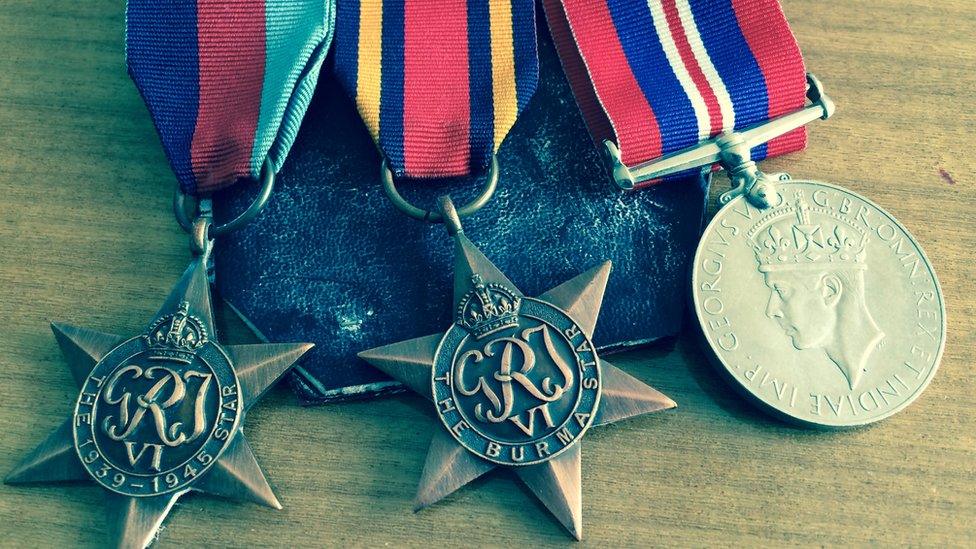
Vic received these medals for his service in World War Two
Vic has travelled back to Myanmar on two occasions, once in 2005 and again in 2010.
"It was quite emotional going back. In 2010 there were four of us.
"Of those four, I'm now the only survivor."
Lisetn: Vic tells his story to Newsbeat, external
Follow @BBCNewsbeat, external on Twitter, BBCNewsbeat, external on Instagram, Radio1Newsbeat, external on YouTube and you can now follow BBC_Newsbeat on Snapchat